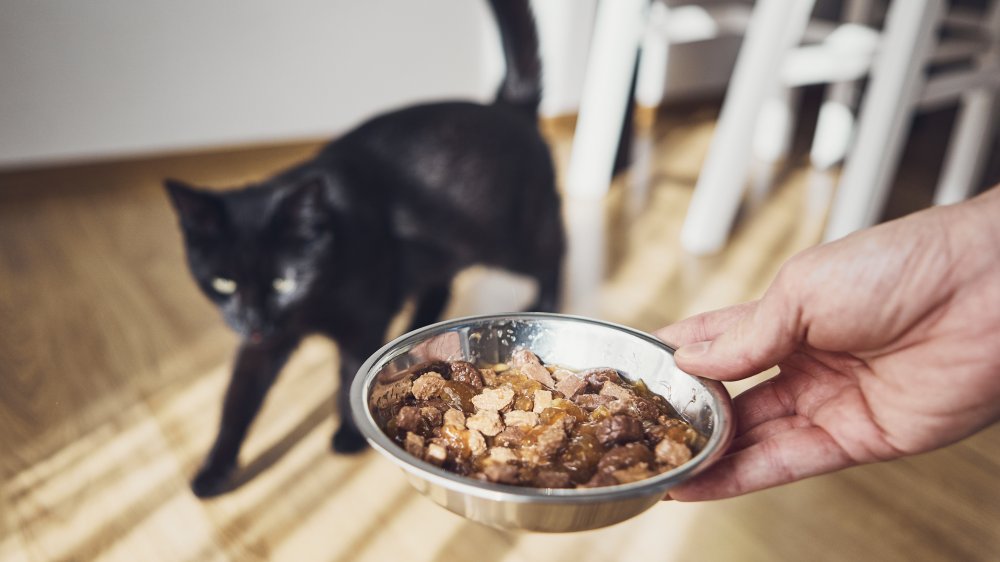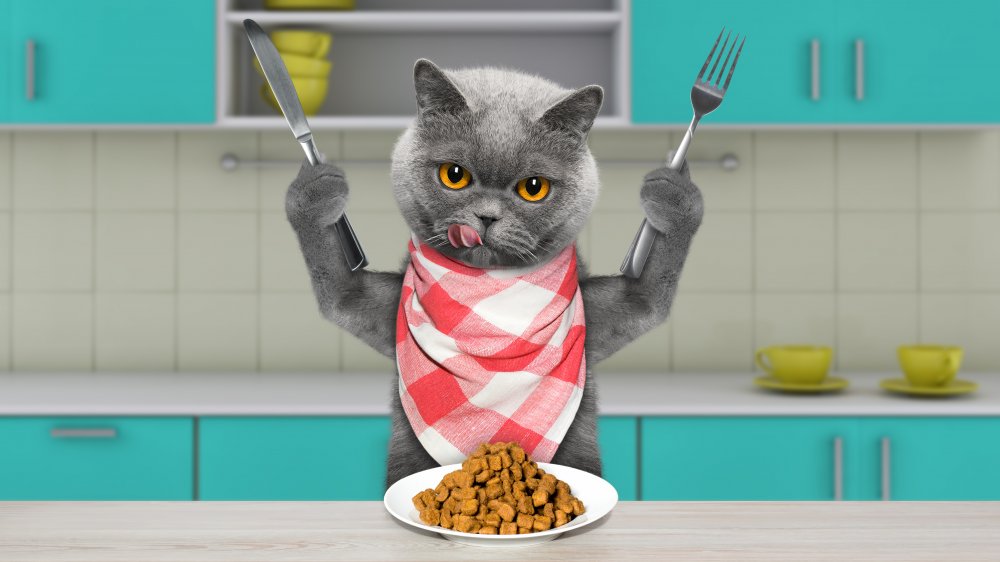Here's How Long Cats Can Go Without Food
Let's start by establishing that this is a safe, judgement-free zone, and nobody is making any assumptions about anybody else, or the things that no one should ever be doing to their cat. There are plenty of reasons to Google "how long can cats go without food?" Maybe you're just genuinely curious. Curiosity never killed anybody, with one notable and prescient exception.
That said, the basic facts are these: Living things need sustenance, and the vast majority of cats currently being kept as pets are — and this is true — alive. In order to stay that way, they have to eat, though explaining that concept to them after you've just brought home twenty pounds of the wrong brand of cat food can be difficult. It could well be that you're currently experiencing an emotional war of attrition with your little allergen ball, with the feline master of the house conscientiously objecting to your draconian policy of "you'll eat what I put in the dish and you'll like it." Or maybe you have the cast of a certain Andrew Lloyd Webber production locked in your basement, and you're wondering when they'll stop making noise. In either case, you'll be asking yourself: How much longer can this go on?
Meow mix, meow mix, please deliver
Depending on your cat's lifestyle, it might be a while before it caves, cries out for help, and admits that one sack of meat-flavored croutons is pretty much as good as another.
According to Catological, when it comes to how long a cat can go without food, "there's no universally applied timetable for every single cat out there." As is the case with most creatures, both old cats and extremely young ones need food more frequently than the prime-of-their-life models.
Generally speaking, an adult can go between one and two weeks without food, depending on how much water they're getting and their level of activity. That said, without enough nutrients, they can experience liver failure and permanent organ damage in just a few days, so it's not something to mess around with. PetMD states that if your pet is prone to skipping a meal or two, it's probably nothing to worry about, but a sudden 24 to 36 hour hunger strike might call for a trip to the vet.

